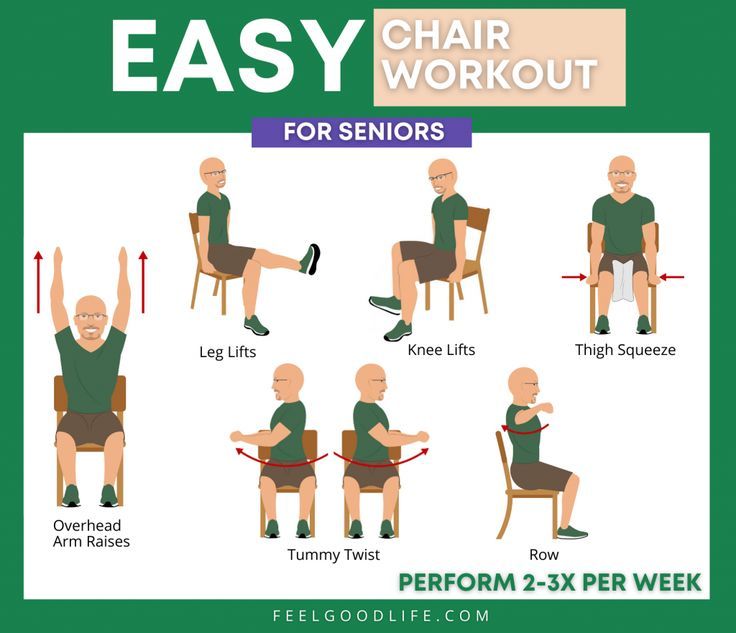Aging is a natural process that brings about changes in the body, including a decline in mobility and physical fitness. However, staying active and engaging in regular exercise is crucial for seniors to maintain their overall health and well-being. Physical activity not only helps seniors maintain their independence but also reduces the risk of chronic diseases and improves cognitive function. In this article, we will explore the importance of mobility and exercise for seniors and provide some practical tips.
The Benefits of Mobility and Exercise
Mobility and exercise play a vital role in supporting seniors' physical and mental health. Here are some key benefits:
1. Improves Physical Functioning
Regular physical activity helps improve mobility, flexibility, and balance in seniors. Engaging in exercises that target muscle strength, such as weightlifting or resistance training, can help prevent muscle loss and maintain bone density. This, in turn, reduces the risk of falls and fractures, which are common concerns for older adults.
2. Enhances Cardiovascular Health
Aerobic exercises like brisk walking, swimming, or cycling can boost cardiovascular health by strengthening the heart and improving blood circulation. Engaging in regular cardio exercises helps reduce the risk of heart disease, stroke, and high blood pressure, allowing seniors to maintain an active lifestyle.
3. Manages Chronic Conditions
Exercise can be a powerful tool in managing chronic conditions commonly experienced by seniors, such as arthritis, diabetes, and osteoporosis. Low-impact exercises like yoga, tai chi, or water aerobics can help alleviate pain, increase joint flexibility, and improve overall quality of life.
4. Enhances Mental Well-being
Physical activity stimulates the release of endorphins, also known as "feel-good" hormones, in the brain. Regular exercise not only reduces symptoms of depression and anxiety but also enhances cognitive function and memory. Engaging in social exercise activities, like group fitness classes or walking clubs, also promotes social interaction and reduces feelings of isolation or loneliness.
Tips for Safe and Effective Exercise
When it comes to exercise for seniors, safety and appropriateness are of utmost importance. Here are some tips to keep in mind:
1. Consult with a Healthcare Professional
Prior to starting any exercise program, seniors should consult with their healthcare provider, especially if they have pre-existing medical conditions. Healthcare professionals can offer personalized advice and help determine suitable exercises based on individual health needs.
2. Choose Low-Impact Exercises
Low-impact exercises are gentle on the joints and reduce the risk of injury. Walking, swimming, cycling, and yoga are excellent options for seniors. These exercises offer numerous health benefits without placing excessive strain on the body.
3. Gradually Increase Intensity
Seniors should start with light exercises and gradually increase intensity and duration over time. It's important to listen to your body and not push beyond comfortable limits. Remember, slow and steady progress is key to avoiding injuries and ensuring long-term adherence to an exercise routine.
4. Incorporate Resistance Training
Strength training exercises using resistance bands or light weights can help seniors build muscle strength and improve balance. It's essential to learn proper technique and start with light resistance under the guidance of a trained professional to avoid muscle strains or injuries.
5. Warm-up and Cool Down
Prior to exercising, seniors should engage in a proper warm-up routine to prepare the body for the activity. This can include gentle stretching and mobility exercises to loosen up the muscles. Similarly, cooling down after exercising with light stretches helps prevent muscle stiffness and aids in recovery.
6. Stay Hydrated and Listen to Your Body
Seniors should ensure they stay well-hydrated before, during, and after exercising. It's important to drink water even if you don't feel thirsty. Additionally, always pay attention to any signs of discomfort or pain during exercise. If something doesn't feel right, stop and seek medical advice if necessary.
Conclusion
Mobility and exercise play a crucial role in maintaining the health and well-being of seniors. Regular physical activity offers numerous benefits, including improved physical functioning, enhanced cardiovascular health, management of chronic conditions, and better mental well-being. By following some simple tips and consulting with healthcare professionals, seniors can safely and effectively incorporate exercise into their daily routine, leading to a more active and fulfilling life.
